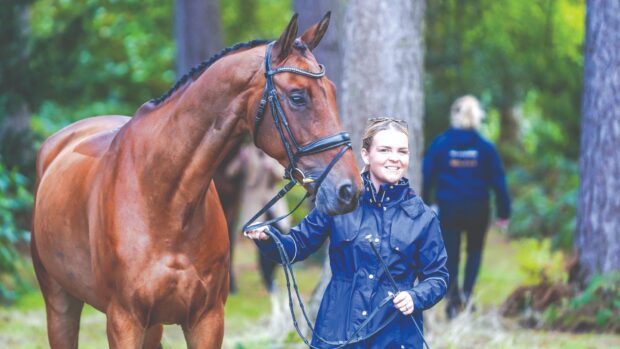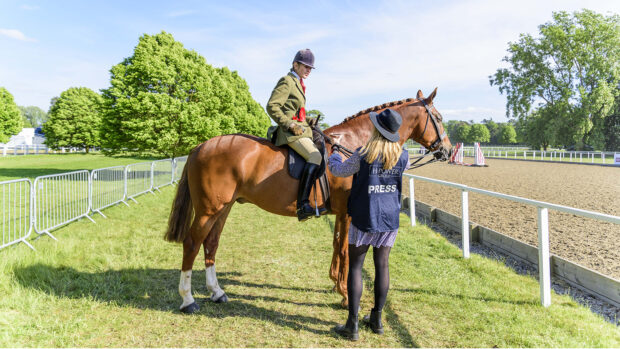Horse enthusiasts about to embark on a career are often faced with two preconceived options. One choose a completely unrelated job, and hope to earn enough money to keep your own horse. Two make horses your career, and have no time, money or energy left to enjoy them as a hobby.
But thats not the whole story. Some people do manage to combine their passion with their career, and have climbed the ladder to reach an enviably well-paid job. These people dispel the myth that working with horses is all hard labour, long hours and no prospects.
Paul Greeves worked his way up in racing administration from a management trainee position to director level in 13 years. He is now operations director at Weatherbys in Wellingborough, responsible for the racing, stud book and IT divisions, and office services.
For Paul, it was good fortune, rather than design that got him into the horse world. While studying business at university, he approached Weatherbys for his thesis on the finances of the racing industry. He was then delighted to be invited to interview for a position that had come up at the company.
Although I had a passion for racing, Id never believed it could provide the challenging career I wanted, or the rewards, says Paul, who had been about to embark on a career in personnel management. In those days there were not as many management staff in racing as now, so there were fewer opportunities.
Today there are several areas for working your way up in the racing industry in administrative roles, marketing, racecourse management and bookmaking to name just a few. There is even a graduate training programme run by the British Horseracing Board, with 18 places annually.
For those seeking to get into the racing industry, Paul cites enthusiasm for your subject as paramount. It takes that 10% of initiative and drive beyond the normal input to get to the top, he advises.
Paul estimates that a graduate could expect around £15,000 as a starting salary, with the potential to earn more in London. If you reach the very highest levels, he adds, there are six-figure salaries to be had.
But, for Paul, the financial rewards are less important than the fact that he is able to combine a passion and a career.
I pinch myself every day, he says. I read the Racing Post in the morning and its work!
- This careers feature was first published in Horse & Hound (11 August, ’05)

 Get up to 19 issues FREE
Get up to 19 issues FREE
 UK’s No1 weekly for Horses for Sale
UK’s No1 weekly for Horses for Sale
 Latest results and reports
Latest results and reports
 TO SUBSCRIBE CLICK HERE
TO SUBSCRIBE CLICK HERE





